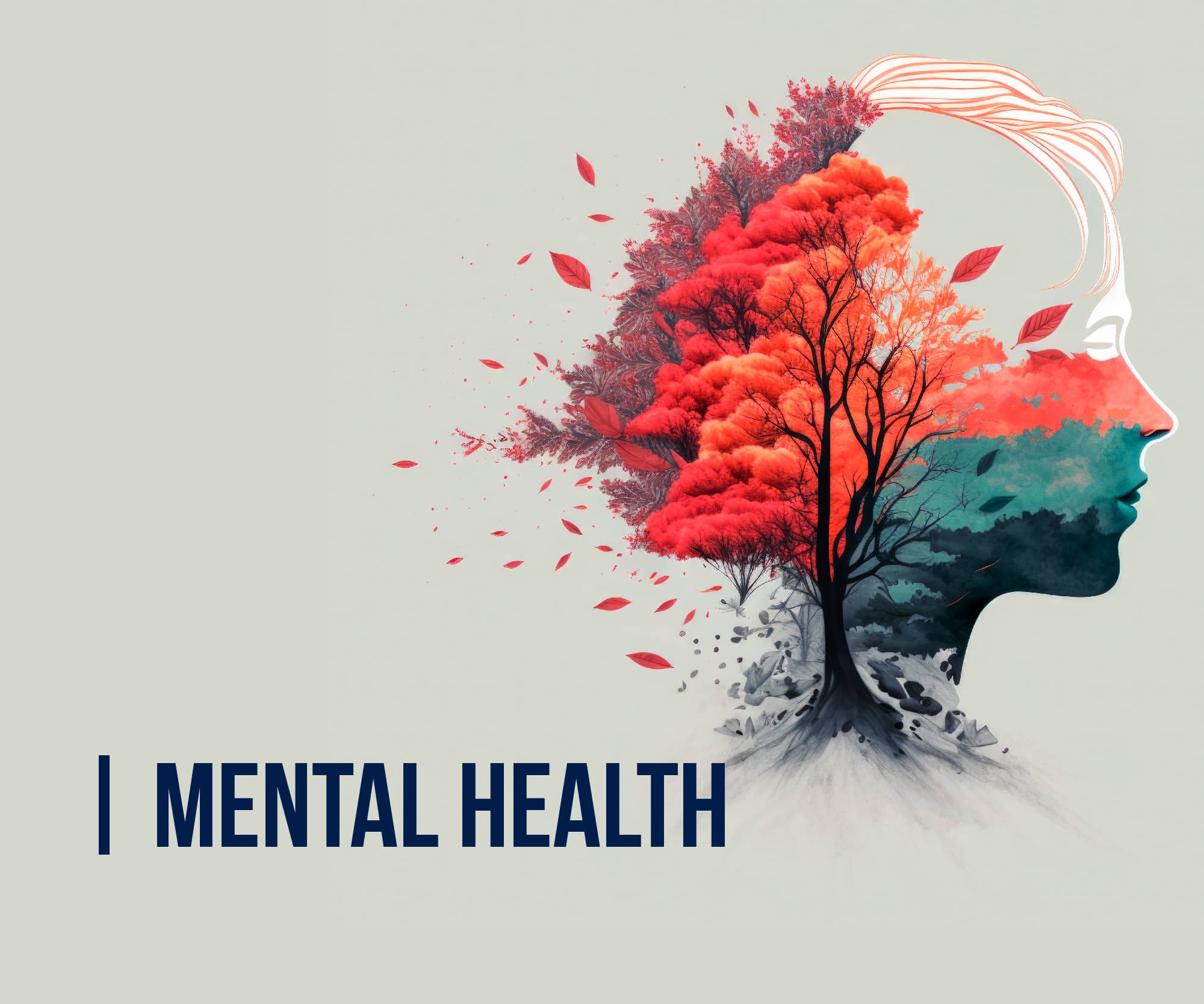
Breaking the Silence: Promoting Mental Health Awareness for a Happier and Healthier Tomorrow
The Importance of Mental Health Awareness
We do know of the times when mentally disturbed individuals were locked up in their homes and sometimes chained too, to avoid them causing harm or getting violent. They were treated with disdain and taken to ward off evil spirits by magicians.
Thank God, times are changing and let’s admit, mental health awareness today is far more widely spread than in yesteryears. Right from identifying delayed milestones in newborns, to diagnosing ADHD in restless kids to taking young adults’ mood swings seriously, levels of sensitivity have no doubt risen in our Indian society.
Mental health encompasses psychological, social, and emotional well-being, all of which impact a person’s ideas, emotions, and behavior.
Let us read on to see how young adults can overcome the stigma of shame and guilt and seek support to get on with their work, study, and play. After all, we only have this one life and it cannot be spent in silent suffering and fear of consequences.
Understanding Mental Health: Breaking the Stigma
In India, there is still stigma and misinformation around mental health, which makes getting treatment difficult for many. Until research proved otherwise, it was believed that mental health issues were genetically transmitted and were handed down from the previous generation. With extensive research and plenty of experimentation, it was known that many other factors caused mental illness and the cure to them too was in hand.
Many online and in-person counselling centers offer therapy either free or at subsidized prices for students. Moodspace, Youth for Mental Health, Veera Health, Therapize India, Talk to Therapist, Dr. Safe Hands, Mind Peers, Mann Talks, The Zehak Project, Sangath, and LiveLoveLaugh (LLL), are some of them. Recent initiatives like the “It’s OK to Talk” campaign by the Indian mental health platform Sangath and the LiveLoveLaugh (LLL) foundation, launched in 2015 by Deepika Padukone, which leverage her experience to dispel the stigma associated with mental illness, promote mental health, and offer trustworthy resources.
Recognizing Common Mental Health Issues: Awareness is Key
In India, mental health illnesses such as substance addiction, depression, and anxiety affect about 7.5% of the youth. Furthermore, approximately 26% of people between the ages of 13 and 17 report having severe psychological distress, with 75% of mental health issues emerging before the age of 18. (Sources: WHO 2021, NIMHANS 2019) With such alarming statistics, it is vital to identify the cause of common mental health disorders like anxiety, depression, and stress. A student until he enters college, has been handheld by his parents/guardians and elders to walk the stressful academic terrain and cope with its challenges. This pattern changes the moment he gains admission into college. With freedom in hand and new subjects to master,
Stress, anxiety, and depression are prevalent mental health conditions among students. The first step in treating these disorders is acknowledging them. A World Health Organisation report from 2021 states that India has one of the highest rates of youth depression. A persistent sense of sorrow, disinterest in activities, and irregular sleep patterns can all be early indicators of mental health problems. One in five college students report having serious mental health issues, according to recent surveys like the National Mental Health Survey of India. This underscores the need for early detection and improved awareness.
The Impact of Mental Health on Academic and Personal Life
Mental health has a significant influence on both academic achievement and interpersonal relationships. Students who are dealing with mental health issues may find it challenging to concentrate, complete assignments, and participate in class. For instance, a 2022 study that was published in the Indian Journal of Psychological Medicine discovered that students who did not receive depression therapy had greater dropout rates and lower CGPA ratings.
One’s relationships with family and friends are also impacted by this influence. The study emphasizes how difficult it can be to balance academic responsibilities with personal struggles, which can lead to stress and feelings of isolation. Narratives featured in The Hindu and other notable newspapers demonstrate how, if left untreated, mental health issues can cause problems in both personal and academic life.
Resources and Support Systems: Where to Seek Help
Understanding what one goes through, it is important to know where to look for help while facing mental health challenges is crucial. Numerous tools are available to assist, including internet resources, helplines, and counselling services for college students. For instance, the Vandrevala Foundation’s mental health helpline in India offers 24-hour assistance. YourDOST and TalktoAngel are two examples of online counselling services that provide discreet, conveniently accessible support. Furthermore, New Horizon College provides on-campus counselling services to students and hosts seminars and workshops in partnership with other mental health organizations. This ensures that students have multiple choices for obtaining the assistance they need.
Self-Care Strategies: Building Resilience
Students need to prioritize taking care of themselves to maintain their mental health and develop resilience. They can achieve this by putting simple but powerful strategies into practice, such as regular exercise, a balanced diet, adequate sleep, and mindfulness practices.
The rich cultural past of India offers priceless tools for mental wellness, such yoga and meditation, both of which are widely acknowledged for their positive effects. YouTube channels that focus on guided meditation and Mindfit are examples of services that cater specifically to the Indian market and provide relevant support.
Recent research indicates that college students who practice yoga daily can greatly lessen their symptoms of hopelessness and anxiety. Encouraging kids to participate in these activities can contribute to the development of resilient, healthy, and psychologically sound students.
The Role of the College Community: Fostering a Supportive Environment
Promoting mental health can be greatly aided by a vibrant and supportive campus community. Peer support groups, mental health awareness campaigns, and college-led initiatives are examples of student-focused programs that can help foster a friendly environment.
For instance, the goal of New Horizon College’s workshops and mental health awareness weeks is to foster a community that is understanding and helpful. Collaborating with respectable organizations like the National Institute of Mental Health and Neurosciences (NIMHANS) to offer expert lectures and counselling sessions might further enhance the effectiveness of these programs.
Encouraging Open Conversations: Creating a Culture of Empathy
Encouraging candid discussions about mental health is truly crucial for creating a supportive and empathetic environment, whether it’s in the workplace or at college. When we openly talk about mental health, we can help break down the stigma and make it easier for students to seek help when they need it. In India, the media and celebrities have played a significant role in raising awareness about mental health through initiatives like the Live Love Laugh Foundation and many others. One of the foundation’s programs, “You Are Not Alone,” specifically targets students and provides resources to promote open conversations about mental health. These efforts emphasize the importance of having honest discussions without fear of judgment, ultimately making it easier for students to access the support they need.
Towards a Happier and Healthier Tomorrow
Prioritizing mental health awareness is crucial for the well-being of students at Bangalore’s New Horizon College of Engineering. By acknowledging and addressing mental health concerns, utilizing available resources, practicing self-care, and creating a supportive atmosphere, students may contribute to leading happier and healthier lives. Together, let’s eliminate the stigma, embrace mental health, and build a more promising future. Don’t forget that seeking support is a show of strength rather than weakness and that mental and physical health are equally important. Let’s continue to create an environment where each student has the self-assurance and assistance they require to thrive both academically and personally.
Here are five frequently asked questions (FAQs) for the title “Breaking the Silence: Promoting Mental Health Awareness for a Happier and Healthier Tomorrow”:
FAQs
Common signs include persistent sadness, anxiety, changes in mood, social withdrawal, and changes in sleep or appetite.
Listen without judgment, offer your support, encourage them to seek professional help, and educate yourself about mental health.
Regular exercise, healthy eating, sufficient sleep, mindfulness practices, and connecting with loved ones can help manage stress and improve mental well-being.
Breaking the stigma encourages open conversations, reduces shame, and enables more people to seek the help they need without fear of judgment.
Resources are available through mental health professionals, local clinics, online support groups, and organizations like the National Alliance on Mental Illness (NAMI) and Mental Health America (MHA).






